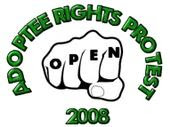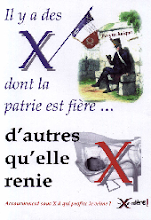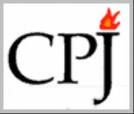 CLEBURNE TIMES,
CLEBURNE TIMES, April 30, 2008
Larue Barnes: Motherly love part II
Editor’s note: This is part two of a two-part series.
Happy Morris, the first Johnson County nurse, entrusted me with precious things.
Inside scrapbooks were notes from jail inmates who thanked her for giving them direction and motherly love. There were documents from her career as a registered nurse — and records from her past history that had once been carefully guarded by her adoptive parents.
She agreed to share her story with you.
Happy retired after 28 years as nurse at the Johnson County jail.
She was the one who, accompanied by a sheriff’s deputy or a policeman, had the grisly job of pronouncing someone dead at murders, accidents and suicides. She performed autopsies under the supervision of the county medical examiner.
She also trained a staff of nurses and gave instructional training to correctional officers.
Her greatest joy, however, came from serving as a physical and emotional lifeline to the jail’s inmates.
Many wrote letters of appreciation to her — some presented on Mother’s Day.
Finding her mother
Ironically, she never knew the woman who gave her birth.
She was adopted from Hope Cottage in Dallas when she was a month old by Kelly and Ethel Stephens in Cleburne. Her birth records had been sealed.
“In 1990, when my son, Brad Lemley, had a serious health problem, I needed to know my family history,” Happy said. “My father, who had fiercely guarded any information about my adoption, had died. My mother was in a nursing home.
“I decided to try to find out medical information about my birth parents on my own. I wrote to Hope Cottage in Dallas.
“Although I received a reply it was very general in nature, and provided no precise information. They referred me to Searchline in Irving, Texas [no longer in service.]
“When I started going to the meetings at Searchline, which met in a private home, I met many adoptees and birth mothers. I was shocked at what I learned there.
“I had never agonized over the fact that I didn’t know my biological mother, but I met others who had been traumatized by not knowing theirs.
“The mothers there, who had given up their babies for adoption, were deeply grieved. Some found out where their children lived, watched their homes from the street, and one had even gone through the family’s garbage, desperately trying to find out anything she could about her child. I learned that some attended ball games to secretly watch their children play. Some had tried to make contact and had been rejected.
“I found out how to get my birth records. Judge C.C. ‘Kit’ Cooke ordered them opened — since I needed the family history for health reasons. I had to certify that I needed the information for that purpose only.”
Judge Cooke explained, “In 30 years I’ve only opened adoption records for six people. Those have all been for the purpose of securing essential family medical history for the treatment of disease. In the state of Texas this privilege is very guarded.”
Happy said, “Richard and I went to Austin to get the records, turned it all over to Searchline, and within five days, I knew my birth mother’s name and address. It was helpful that she had not moved.”
An answer at last
On a hot, summer day, Happy’s letter — which she had worded very carefully — arrived at a Dallas residence.
It read, “In searching for [medical] information I found the name of my biological mother and have reason to believe that you could be she.
“If you are my biological mother, I do not want to make you uncomfortable or cause problems for you; however I would like to meet you, if you are agreeable. If you are not comfortable with meeting me, could I please send you a medical form to fill out?”
Then, she told her mother about her own life.
She continued, “If you are my biological mother, I know that it must have been hard to give me up, but at the time you felt you did the best thing. My mother would always say on my birthday that she was thinking of you and how thankful she was to be given the opportunity to adopt and raise me. My father died in 1974, at 87. My mother is 93, in a rest home with Alzheimer’s Disease and has not known me for 12 years.
“I have prayed that I would find you alive and in good health, just to thank you for life — and what a loving and thoughtful thing you did for me.”
A response came quickly.
“Oh, what a joy and a shock!” the woman wrote. “You can’t imagine how I felt. I’d read a while and cry. I hope you don’t think ill of me for giving you up. It was the hardest thing I’ve ever done. There wasn’t a way I could have kept you. I was working in a beauty shop for $1 a day.
“Every night I ask the Lord to take care of you. I am so proud you had good parents and have done good. I’m proud of you.”
She then gave the medical information Happy needed. She had no present husband but had never told her daughter and son her secret. She needed time to think about it.
She closed with, “I would love to see you, but I don’t know if I could stand to look at you and think of what I did. The nurse told me the night you were born it would be better if I didn’t look at you, but as one nurse handed you to another nurse you had your little hands up. I’ll never forget that.”
Happy sent photographs. One of her photos compared to one of her mother at a younger age showed striking similarities. Her mother told her of her own personal traits: She is a perfectionist, never put things off, her hair must be “fixed” before she goes out. She is afraid of storms and heights.
She invited Happy to bring her husband for dinner “in a few weeks.”
Happy and Richard did visit. They met her birth mother, Juanita, Juanita’s daughter, her daughter’s husband, and their two children.
“I feel sure that if my sister had known about me, she would’ve found me before now,” Happy said. “It was good to meet my mother and to have so many questions answered. I remember thinking things were funny, growing up, when Mother and Daddy didn’t see the humor in it. Juanita and I laugh at the same things. She is a good friend.”
Bittersweet endings
Happy said she realizes that all searches do not end so well. Happy’s older sister, Patsy Jean Norris, also adopted by the Stephens, searched diligently for her birth mother, only to find that she had died three years earlier. Her sister was able, however, to get in touch with other family members.
Happy’s discovery, however, was bittersweet.
“On Sept. 19, 1990, I met Juanita,” she said. “The next day my mother passed away. My mother was 93 years old, in a rest home with Alzheimer’s disease.
“She had not known me for 12 years. I felt guilty that she didn’t know about my findings — but my pastor said it was her time to go, and to let Juanita take over from here.”
She added poignantly, “But Mother will always be my mother.”
Melody Walls Light, one of the three Walls children Happy raised during her marriage to Neal Walls, wrote, “Three years ago, Happy’s true love and husband of 19 years, Richard Morris, died. I moved home after living in Grapevine to be with them during this time.
“Together we served Richard at home through his cancer battle with the loving support of Happy’s pastor, Bro. Charles Payne and the Calvary Baptist Church until the Lord took him home.”
Happy said of her pastor and music minister, “I’ll always be grateful to brother Payne and brother Eddie Carroll. Richard accepted Christ as his Savior here at the house before he died.”
Picking up her Bible, she said, “After Richard was saved, my life has never been the same. I try to live by Psalm 19:14, ‘Let the words of my mouth, and the meditation of my heart, be acceptable in thy sight, O Lord, my strength, and my redeemer.’”
She admitted there had been times through the years when she was cooking in her kitchen that she wondered if the woman who gave birth to her liked to cook, too.
“I knew Mother loved it. She was a great cook. And I wondered whether I liked to cook because of heredity or environment. It turns out Juanita loves to cook, too.”
During recent stormy weather, Happy’s home telephone rang.
“Put your clothes on,” the voice said. “You don’t want a storm to blow you away with your pajamas on!”
It was Juanita. Just checking to be sure her daughter was safe.
This story was suggested by Melody Light.
Larue Barnes may be reached at laruebarnes@yahoo.com.
Link to article























